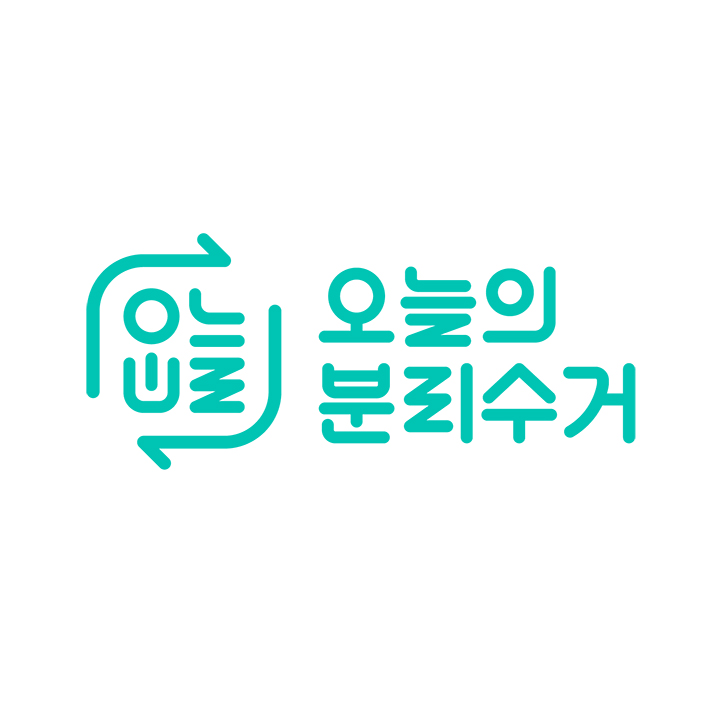


Recycle Today is an app-linked smart recycling bin invented by the start-up Oyster Able in 2016. The bin incorporates IoT (Internet of Things) technology to classify recycled items and reward users with discount coupons and opportunities to donate to forest-building campaigns (Oyster Able 2020).
The Challenges
Although renowned for its high recycling rates (i.e. rate of utilization of waste-classified bins), South Korea has surprisingly low upcycling rates (i.e. rate of manufacturing new products from recycled material). In 2016, while recycling rates reached 58.5%, upcycling rates stopped at 20.8% (Oh, Kim and Kim 2018). This is due to the high waste contamination rates arising from improper waste classification, which reached 38.8% in 2016 (Ministry of Environment 2018). Other than the vague desire to protect the environment, people are often short on time and patience and lack concrete motivation to study the details of minute recycling regulations. Thus, there was a need for an additional initiative to provide the “how” and “why” of proper recycling.
The Solution
Oyster Able’s app “Recycle Today” attracts users with the two-pronged appeal of environmental protection and app-tech (the trend of generating side income from mobile apps). To use the app, users must find Oyster Able’s IoT-powered recycling bins in their neighbourhood. The bins use weight sensors and barcode readers to detect and classify the waste item into the correct bin (Oyster Able 2020). Users can then refer to the app for the amount of points generated from their recycling activity. Items lacking barcodes can still generate points if its photo is uploaded onto the platform (Bunlisugeo 2020). Those who obtain a certain level of points may receive discount coupons accepted in neighbourhood stores or donate their points to forest-building campaigns (Kim 2018). The Recycle Today initiative serves both as a tool to reduce waste contamination (as users are rewarded points only upon accurate classification) and as an efficient, tech-powered mechanism to collect accurate data on recycled items. Government entities may use data on the app to gain a more accurate portrait of the need for waste management facilities, while local businesses may seek out the detailed statistics on the app as a tool to understand consumer trends (Kim 2018).
The Impact
During the pilot testing period from August 2016 to August 2017, recycling rates for paper packs increased from 24.5% to 68% (Lee 2018). In the month of August 2016 alone, waste contamination rates (i.e. rate of incorrect classification of recyclable goods) reduced from 30-40% to 2-3%(Kim 2018). As of July 2019, 179 bins have been installed across South Korea (Oyster Able 2019). The bins have also garnered international attention, and 3 bins were installed in Tokyo in collaboration with Tetra Pak Japan, Seven&i Holdings and the Tokyo Olympics 2020 Committee (Oyster Able 2019). Points donated by users have generated funds to plant 1,700 trees in Busan’s Geum-jung District and 3,400 trees inSeoul’s Songpa District (Jeong 2020; Kim 2020). Five different technologies involved in the installation of the bins have obtained patents in South Korea (Oyster Able 2019). Users complimented the initiative as being a good educational tool on proper recycling methods and noted their distinct sense of satisfaction in contributing to a cleaner community (Naeui jakeun2020).
Reference
Jeong, S.H. (2020). Geumjeong-gu, IoT jaehwalyongpum bunlisugeo jeokrib point-ro ‘namu shimgi’ shilshi [금정구, IoT 재활용품 분리수거 적립 포인트로 ‘나무 심기’ 실시] [Online]. Available at: http://www.busan.com/view/busan/view.php?code=2020101510503013241 (Accessed: 2 November 2020). (only available in Korean)
Kim, B.S. (2018). Bae Taeguan Oyster Able daepyo “Bunlisugeoman jalhaedo sseuraegiro donbeonda [배태관 오이스터 에이블 대표 “분리수거만 잘해도 쓰레기로 돈번다”] [Online]. Available at: https://biz.chosun.com/site/data/html_dir/2018/10/12/2018101202514.html (Accessed: 2 November 2020). (only available in Korean)
Kim, J.S. (2020). [Sangsenghyupryuk] Jaehwalyongpum bunlibaechul-man jalhaedo donbeonda [[상생협력] 재활용품 분리배출만 잘해도 돈번다] [Online]. Available at: https://news.mt.co.kr/mtview.php?no=2020081817444510507 (Accessed: 2 November 2020). (only available in Korean)
Lee, G.J. (2018). Smart IoT bunlibaechul station ‘Oyster Able’ [스마트 IoT 분리배출 스테이션 ‘오이스터 에이블’] [Online]. Available at: http://www.digitaltoday.co.kr/news/articleView.html?idxno=204412 (Accessed: 2 November 2020). (only available in Korean)
Ministry of Environment, Republic of Korea (2018). Gukmineun algi shweepgo, jaehwalyongeun jal dwego! ‘Jaehwalyong bunlibaechul annaeseo’ 6weol chulshi [국민은 알기 쉽고, 재활용은 잘 되고! ‘재활용 분리배출 안내서’ 6 월 출시] [Online].
Naver Blog. Available at: https://blog.naver.com/mesns/221278501887 (Accessed: 2 November 2020). (only available in Korean)
Oh, G.J., Kim, J.Y. and Kim, K.H. (2018). Calculation of actual recycling rate and effect of greenhouse gas reduction by recycling of MSW in Korea. Seoul: National Institute of Environmental Research. Available at: https://ecolibrary.me.go.kr/nier/#/search/detail/5677756 (Accessed: 2 November 2020).
Oyster Able (2020) [Online]. Available at: https://oysterable.com (Accessed: 2 November 2020).
Oyster Able (2019). Shimin Chamyeohyeong smart IoT bunlisugeo solution, Oneul-ae Bunlisugeo [시민 참여형 스마트 IoT 솔루션: 오늘의 분리수거]. Seoul: Oyster Able. Available at: https://www.dropbox.com/s/imusqu8kuat20gd/201906_오이스터%20 에이블.pdf?dl= 0 (Accessed: 2 November 2020). (only available in Korean)
UID: 3035361570 17 Unknown (2020). Bunlisugeo jaedaero-hago point batja: Oneul-ae bulnisugeo [분리수거 제대로 하고 포인트 받자: 오늘의 분리수거] [Online]. Available at: https://blog.naver.com/geminipark/222051772351 (Accessed: 2 November 2020). (only available in Korean)
Unknown (2020). [Naeui jakeun shilcheon] Jongi vs Jongipack. Jongipack bulnibaechulhagi (feat. Oneul-ae bulnisugeo) [[나의 작은 실천] 종이 vs 종이팩. 종이팩 분리배출하기 (feat. 오늘의 분리수거)] [Online]. Available at: https://blog.naver.com/killyou84/222069899552 (Accessed: 2 November 2020). (only available in Korean)